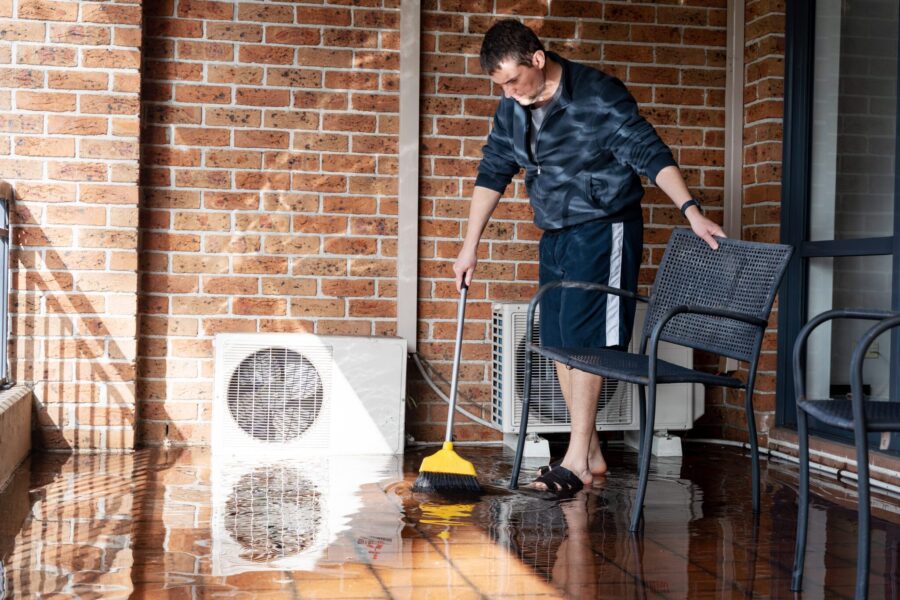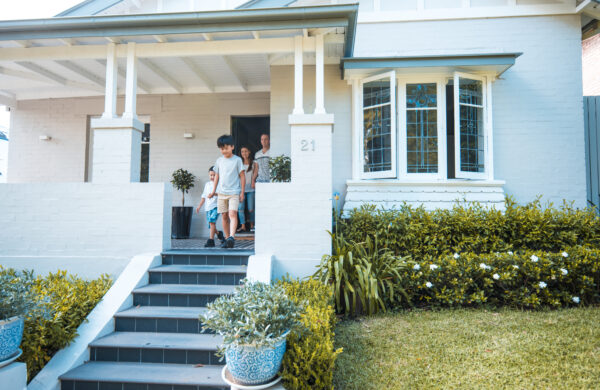Since home repairs can be a major expense, you sleep better knowing you have homeowners’ insurance. If your home is damaged, your insurance will cover the repair costs. However, this is not always the case – sometimes the loss is excluded. Check your policy for the common homeowners’ insurance exclusions.
Homeowners’ Insurance Coverage
Before diving into common exclusions, let’s review what homeowners’ insurance covers. A typical homeowners’ insurance policy includes the following coverage types:
- Coverage for your home. This is what most people think of when they think about home insurance. If your home is damaged by any of the perils your policy covers, your insurance company will pay to repair or rebuild your home, up to the policy limits. Other structures on your property (such as detached garages) can also be covered.
- Coverage for your personal belongings. Your homeowners’ insurance policy also covers your belongings – for example, your furniture, clothes and appliances. Once again, this is limited to perils covered by your policy and by the policy limits.
- Additional living expenses. If you have to stay at a hotel while your home is being repaired, your insurance company may cover some or all of the costs. Coverage is typically limited to property losses included in your policy.
- Liability coverage. Homeowners’ insurance policies typically provide some liability insurance coverage. For example, if you are sued because your kid damaged someone’s property, your dog bit someone, or someone fell on your porch, you may have coverage under your homeowners’ insurance policy.
All Risk vs. Named Perils
There are two types of homeowners’ insurance policies. You need to know what type you have to determine what it covers.
- Named Peril: A named-peril policy only covers the loss types listed in the policy. If a loss is not listed, the policy does not provide coverage for it.
- All Risk: An all-risk policy does NOT cover all risks! It covers all the risks not listed as excluded. You’ll need to read your policy to determine exactly what it excludes. Since some exclusions are standard, you can expect to find them in your policy.
Commonly Covered Perils
According to the Insurance Information Institute, an HO-3 policy is the most popular type of homeowners’ insurance policy. It typically provides coverage for the following perils:
- Fire or lightning
- Windstorm or hail
- Explosion
- Riot or civil commotion
- Damage caused by aircraft
- Damage caused by vehicles
- Smoke
- Vandalism or malicious mischief
- Theft
- Volcanic eruption
- Falling objects
- Weight of ice, snow, or sleet
- Accidental discharge or overflow of water or steam from within a plumbing, heating, air conditioning, or automatic fire-protective sprinkler system or a household appliance
- Sudden and accidental tearing apart, cracking, burning, or bulging of a steam or hot water heating, air conditioning, or automatic fire-protective system
- Freezing of a plumbing, heating, air conditioning, or automatic fire-protective sprinkler system or a household appliance
- Sudden and accidental damage from an artificially-generated electrical current
Flood Insurance Is Separate
The flood exclusion takes a lot of homeowners by surprise. It means if a hurricane causes flooding and your home experiences water damage from the flood, you will not have coverage under your homeowners’ insurance policy.
If you want flood insurance – and this is a smart move in areas with a flood risk – you’ll need to purchase a flood insurance policy separately. Many mortgage lenders require flood insurance for houses in areas with flood risks.
You Need to Add Sewer Backup Coverage Separately
If your sewer system backs up and floods your home, you may not have coverage under your homeowners’ insurance policy.
Standard polices do not typically include sewer backup coverage, but you may be able to purchase coverage as an add-on to your policy.
Mold Coverage Is Limited
If a covered peril causes mold, your policy will usually cover the mold itself. For example, if a pipe freezes and bursts, you may have coverage for both the water damage and any resulting mold. However, if an uncovered peril, such as flooding, causes mold, your policy won’t cover the mold.
Insurance Coverage Usually Excludes Earthquakes
Homeowners’ insurance policies exclude earthquake damage. However, you may be able to purchase earthquake coverage separately.
Your Insurance Won’t Cover Wear and Tear
If a fire destroys your refrigerator, you will likely have coverage under your standard homeowners’ insurance policy. However, if your refrigerator simply stops working due to wear and tear, you won’t have coverage. Likewise, if a storm damages your roof, your insurance company may pay for the repairs, but if you need to replace your roof due to its age, you’ll have to pay out-of-pocket.
In addition to taking care of your property, you should find out the expected lifespan of your appliances, your roof and other features of your house. This will enable you to budget accordingly for replacements. For help with unexpected mechanical failures, you can also add an equipment breakdown endorsement to your homeowners’ insurance policy.
Pest Control is the Homeowner’s Responsibility
Proper care and maintenance of your home includes pest control. Insurance companies consider this to be the homeowner’s responsibility. If you have an ant, termite, rat, or other type of infestation, your homeowners’ insurance policy probably won’t cover it. Policies also typically exclude damage caused by infestations.
Your Homeowners’ Insurance Policy Doesn’t Cover Cars
If a car crashes into your home, your homeowners’ insurance policy may cover the damage to your home. However, if you crash your car, your homeowners’ insurance policy won’t cover the damages. Likewise, your homeowners’ insurance policy won’t cover stolen vehicles nor other types of damage to your car. Homeowners’ insurance policies may also limit or exclude damage to boats. To cover your cars and boats, you’ll need to purchase auto insurance and boat insurance, respectively.
Your Policy May Exclude Commercial Activity
Homeowners’ insurance is personal, not commercial, insurance and is not designed for business risks.
However, the line between commercial and personal activity is often blurred. For example, you may rent your home out when you’re not using it, or you may work from a home office.
If you experience a loss connected to your commercial activities, you may not have coverage under your homeowners’ insurance policy. However, you may be able to add an endorsement to your policy to cover a home office or short-term rentals.
Insurers Won’t Cover Intentional or Criminal Acts
Your home insurance policy will likely provide some liability insurance coverage, but you probably won’t have coverage for intentional or criminal acts. For example, if a guest slips on ice on your porch and sues you, you may have coverage. However, if you punch a neighbor in a fight, you probably won’t have coverage for any resulting lawsuits.
Coverage Also Excludes Certain Dog Breeds
The liability coverage in homeowners’ insurance often provides coverage for lawsuits involving dog bites, but there are exceptions. Many policies exclude dogs with a history of aggression and dog breeds considered aggressive.
Your policy may also exclude other types of animals. Even if you’re legally allowed to keep an exotic animal as a pet, your insurance company might not cover any damage or injuries it causes.
One More Thing
In addition to knowing about common homeowners’ insurance exclusions, you need to pay attention to your coverage limits and deductibles. An insurance broker can help you with your coverage needs. Higginbotham offers homeowners’ insurance. Learn more.






